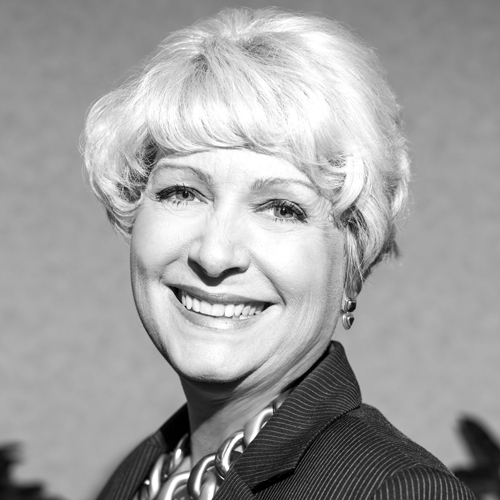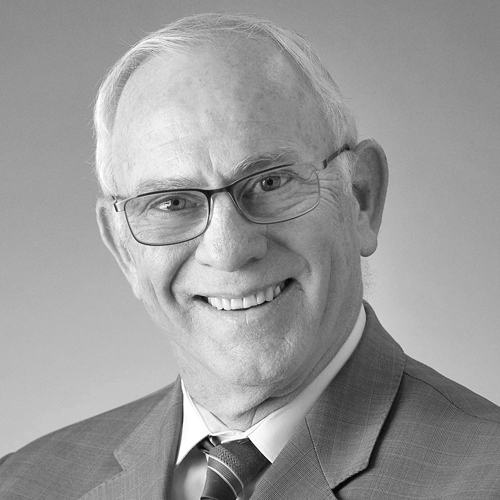When Linda Weller-Ferris speaks about her work, she might take up the better part of ten minutes answering a question, which is a noteworthy compliment. Not every executive is so enthusiastic and informative about the work they’re doing. But she has to be because, to put it lightly, her work is quite complex.
As vice president of Lahey Health Cancer Institute, she’s helping to implement an innovative Oncology Care Model (OCM), a “five-year demonstration project” put forth by the Centers for Medicare & Medicaid Services (CMS) that involves improving the patient experience and reducing the cost of healthcare. Lahey is one of only 196 national practices to be selected for this initiative.
The selection criteria—not to mention the scope of the project itself—is extensive. In a nutshell, Medicare patients are paid at the normal service rate, with Medicare paying an additional $160 per beneficiary, per month, over a six-month period during any intravenous and oral chemotherapy treatments. But all of this hinges upon Lahey supplying data on its patients almost around the clock, all in an effort to ultimately prevent emergency room utilization and unplanned inpatient admissions. In other words, it’s an abundance of heavy lifting for everyone involved.
But Weller-Ferris is the perfect person to accomplish this. Her background has given her a comprehensive outlook on an intensely complicated disease and the equally complicated treatments that coincide. Her background in mental health has been a vital asset. With a bachelor’s degree in psychology, a master’s in clinical psychology, and a PhD in educational and psychological studies, Weller-Ferris credits her experience with helping her to be a more empathic leader. “You really start to put yourself in the shoes of the patient,” she says.
As Weller-Ferris points out, this kind of emotional support is crucial to working with cancer patients, many of whom are facing side effects outside of the direct symptoms of the disease. CMS is aware of this, and as a result, it requires that all healthcare facilities involved with the OCM screen every patient for clinical depression. Weller-Ferris and her team are more than up for the task. “There’s been some research that suggests 50–65 percent of cancer patients, at some point during their cancer experience, will have become clinically depressed,” she explains. “We actually have oncology-specific social workers and a behavioral psychologist who help a lot with the decision-making.”
“I have to worry as much about the caregiving team burning out as I do the patients.”
She uses the decision to have a prophylactic mastectomy as an example. She says many patients don’t realize how much their body image and sexuality will be compromised after the procedure.
“We try and slow it down and have our behavioral doctor meet with [them],” she says. “We have lots of support like that. We have acupuncture for pain. We have pet therapy. We do music therapy. It’s asking, ‘How do we get them through this experience with the greatest amount of support?’”
Weller-Ferris applies this philosophy not only with patients themselves, but also with patients’ families and the caregivers she works with on a daily basis. “I have to worry as much about the caregiving team burning out as I do the patients,” she says. “The MAs care as much about these patients as anyone else. That’s how it should be. It’s not like you’re a surgeon, and after one post-surgery, you’re sort of fine. This is a very relationship-based subspecialty that is very emotionally charged.” In fact, these relationships often go beyond the typical model for care. Weller-Ferris explains that she and her coworkers have even planned anniversary dinners for many of Lahey’s cancer survivors.
When it comes to the frequently elaborate requirements of the OCM, the logistical side of the project is just as important as the emotional one. In order for all of it to be successful, Lahey has to cater to both. The most striking example of this is perhaps Weller-Ferris’s background in accreditation: she was the first non-MD to serve six full years on the Accreditation Committee of American College of Surgeons, Commission On Cancer (ACOS). She views accreditation—a tricky balancing act of emotionalism and practicality—as essential to the OCM project.
“It helped to shepherd in the patient-centered standard for accreditation,” Weller-Ferris says about her time at ACOS. At Lahey, they’ve “[flipped] into very patient-centered standards that have very stringent requirements, like you’re going to give every patient a treatment summary and you’re going to give them a surveillance plan of how they’re going to monitor their function after treatment.”
She’s hoping that all of this will help everyone touched by cancer—patients, families, and caregivers—have an easier time fighting the disease. It makes sense that such a complex illness would require an equally complex remedy, a network that combines the seemingly disparate aspects of the humanism and the organization.
“If you’re going to be in the cancer business, you’ve really got to attend to all of the details,” Weller-Ferris explains. “That goes for accreditation, but it also goes for what the expectations of Medicare and payers is going to be: ‘Here’s your money. I’m going to give it to you to treat this woman or this man.’ That’s where I believe we’re going to be headed. I think that’s where cancer’s headed long-term.”


